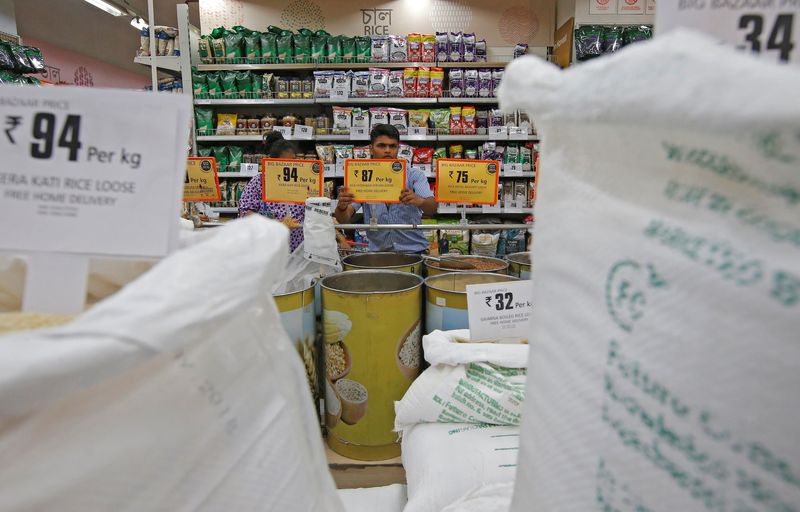By Tushar Goenka
BENGALURU (Reuters) - Indian retail inflation likely slipped marginally in February, thanks to lower food prices, according to economists in a Reuters poll who still warned that surging oil prices will push inflation much higher in the coming months.
Following Russia's invasion of Ukraine, crude oil prices have skyrocketed - in March alone, they have surged about 35% - which will in turn push up fuel, transport and other related components of inflation this month.
Inflation, as measured by the consumer price index (CPI), likely slipped to 5.93% in February on an annual basis, from 6.01% in January, the March 3-9 poll of 36 economists predicted.
Forecasts for the data, due for release on March 14 around 1200 GMT, ranged between 5.70% and 6.40%. Over one-quarter of respondents expected inflation to have remained above the RBI's 6.0% upper threshold.
"I'm expecting the headline moderation in February to be led primarily by the food and beverages component, where adjusted monthly gains have softened from their recent peaks," said Miguel Chanco, chief emerging Asia economist at Pantheon Macroeconomics.
"Storm clouds have been brewing for a while...the best way to describe the inflation numbers from around Q2 onwards is that when it rains, it pours."
Petrol prices at fuel stations, where Indians will feel the effect from higher crude oil prices most acutely, have barely moved but are overdue a rise in coming weeks.
"Sharp (OTC:SHCAY) increase in prices post the announcement of election results and its pass-through to transportation costs would push inflation higher," said Kunal Kundu, India economist at Societe Generale (OTC:SCGLY), referring to elections across five Indian states over the past month including the most populous one, Uttar Pradesh.
Asia's third-largest economy expanded 5.4% in the October-December quarter, slower than the 6.0% predicted by economists in a separate Reuters poll.
Focusing on growth, not inflation, the Reserve Bank of India has held its interest rates steady at record lows for nearly two years but is due to increase borrowing costs next quarter.[ECILT/IN]
The latest poll also showed industrial output likely expanded 1.5% in January from a year ago, compared with 0.4% in December.
